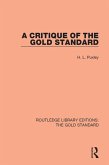The relationship between religion and government in the United States ultimately is governed by the Establishment Clause of the Constitution. Since the early 1970s, however, conservative scholars and jurists have been increasingly influential in arguing that the "wall of separation" metaphor is inappropriate for explaining the relationship between religion and government. They have suggested that the framers of the Constitution supported governmental accommodation and encouragement of religion through means that included sponsoring prayers in public fora, promoting public displays of religious symbols, and financing religious institutions. This book argues that this increasingly influential "Accommodationist" interpretation of the Establishment Clause of the Constitution is ill-founded. The historical arguments upon which the Accommodationists rely do not support the interpretation they offer. This argument does not challenge the Accommodationist belief in the importance of "founders' intent" adjudication. This book shows, instead, that the founders did not assume that the Establishment Clause had any specific meaning.
Dieser Download kann aus rechtlichen Gründen nur mit Rechnungsadresse in A, B, BG, CY, CZ, D, DK, EW, E, FIN, F, GR, HR, H, IRL, I, LT, L, LR, M, NL, PL, P, R, S, SLO, SK ausgeliefert werden.









